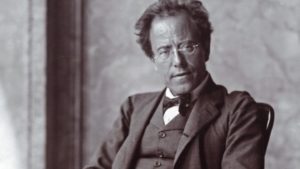
4 Major Operatic Moments in Gustav Mahler’s Conducting Career
By David SalazarGustav Mahler. Born on July 7, he was one of the greatest composers and musicians of all time. At times, chamber music, at others full-blown symphonic as never heard before, at other times operatic, at times in the vein of Eastern music (as Leonard Bernstein repeatedly noted), at times looking backwards to the past of western music, but stretching modern Western polyphonic music as much as he could, Mahler’s music was all-encompassing in his art.
He never wrote an opera, though he absolutely loved the art form and made a huge career as an opera conductor at some of the great theaters around the world.
Of those, he spent quite some time at the Vienna Court Opera, his tenure lasting 10 years and featuring the expansion of the repertoire. But he also conducted at the Stadttheater Hamburg, the Royal Opera, Budapest, and the Metropolitan Opera.
Throughout his tenure with each other these companies he made major strides and led iconic performances and events. Here are Mahler’s big moments as an opera conductor.
Die Drei Pintos
The young composer, ever an admirer of Carl Maria von Weber, finished the composer’s opera himself and ultimately conducted the premiere in Leipzig 65 years after the composer’s death. He went about composing over 13 musical numbers for the work.
Introducing 33 New Operas in Vienna
While his expansion of the repertoire included a number of well-known operas, Mahler, as the head of the company for 10 years, ensured the 33 seldom-heard operas got a chance to be heard in the music city of the world. This project started in 1897 with Smetana’s “Dalibor,” but also included such major operas as “Eugene Onegin,” “Pique Dame,” “Falstaff,” “Les Contes d’Hoffmann,” “Madama Butterfly” and “Samson et Dalila.”
The Appointment of Roller
In addition to showcasing new operas in Vienna, he also made a key appointment, bringing in Alfred Roller as the chief stage designer. The two would create over 20 highly-praised productions together and Roller would be key to some of Mahler’s work at the Metropolitan Opera years later.
German Premiere of a Tchaikovsky Masterwork
Mahler led the German premiere of “Eugene Onegin” in Hamburg in the presence of the composer, who called his conducting “astounding.”
Tristan at the Met
His Metropolitan Opera debut is one of the great musical moments of the 20th century, with the conductor-composer showcasing his abilities to one of the most demanding publics in the world. A review of his work by Richard Aldrich of the NY Times notes, “Most striking was the firm hand with which he kept the volume of orchestral sound controlled and subordinated to the voices. These were never overwhelmed; the balance was never lost, and they were allowed to keep their place above the orchestra and to blend with it always in their rightful place. And yet the score was revealed in all its complex beauty, with its strands of interwoven melody always clearly disposed and united with an exquisite sense of proportion and an unerring sense of the larger values. Delicacy and clearness were the characteristics of many passages, yet the climaxes were made superbly effectual. Through it, all went the pulse of dramatic passion and the sense of fine musical beauty.”
He would remain a fixture with the company for years thereafter, his position further solidified with a number of other high-profile productions such as “Fidelio” and “The Bartered Bride.”


